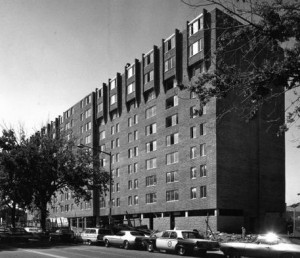Affordable Housing Promised, But Hard to Deliver

Giddy at the prospect of creating a better neighborhood, politicians grinned as a wrecking ball razed the complex at 33 K Street NW. Yet, sitting in the property records, unnoticed, was a restriction that would cripple the project.
Dews-Hall’s former home is now a parking lot. Spaces go for $8 a day, in a Zip code that is gaining white people at a rate faster than any other place in the city. This spring, NPR moved in across the street. The city bestowed $40 million worth of tax abatements and froze property taxes for 20 years to keep the media organization in the city.
Some residents who lived in the neighborhood found themselves in suburban Maryland. Most moved from one concentrated pocket of poverty to another, east of the Anacostia River.
Robert Samuels has a long feature in The Washington Post examining how a collection of low-income housing near Union Station in Washington D.C. that was supposed to be revitalized has instead sent residents far from their homes, some living in conditions just as bad as before they moved. The “New Communities Initiative,” an affordable housing plan, was created eight years ago after the execution-style murder of a 14-year-old girl spurred residents and the mayor to action, but has yet to deliver on any promises.
Lydia DePillis, a columnist at the Post, summed up the story like this: “Big, complicated public land deals involving private investment, churches and mixed-up property records are really hard to pull off. When residents are moved out with the promise of returning to shiny new buildings, something nearly always goes awry.”
Support The Billfold
The Billfold continues to exist thanks to support from our readers. Help us continue to do our work by making a monthly pledge on Patreon or a one-time-only contribution through PayPal.
Comments